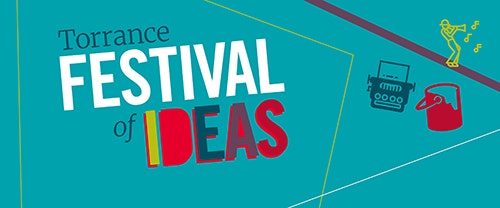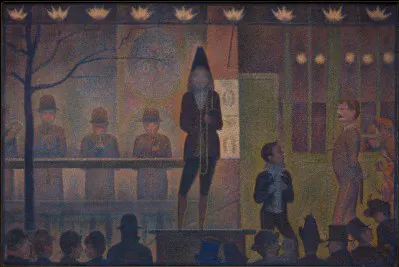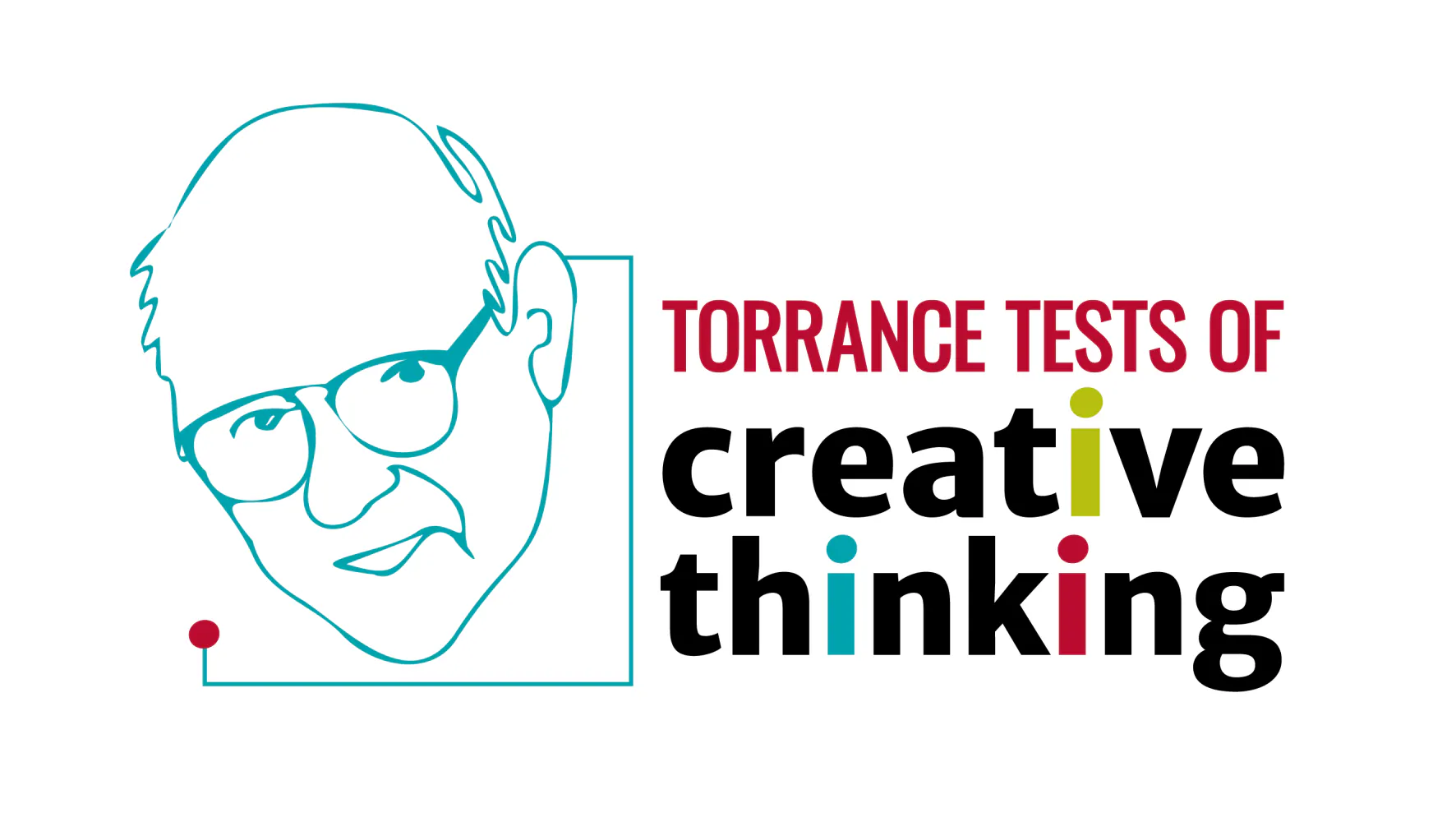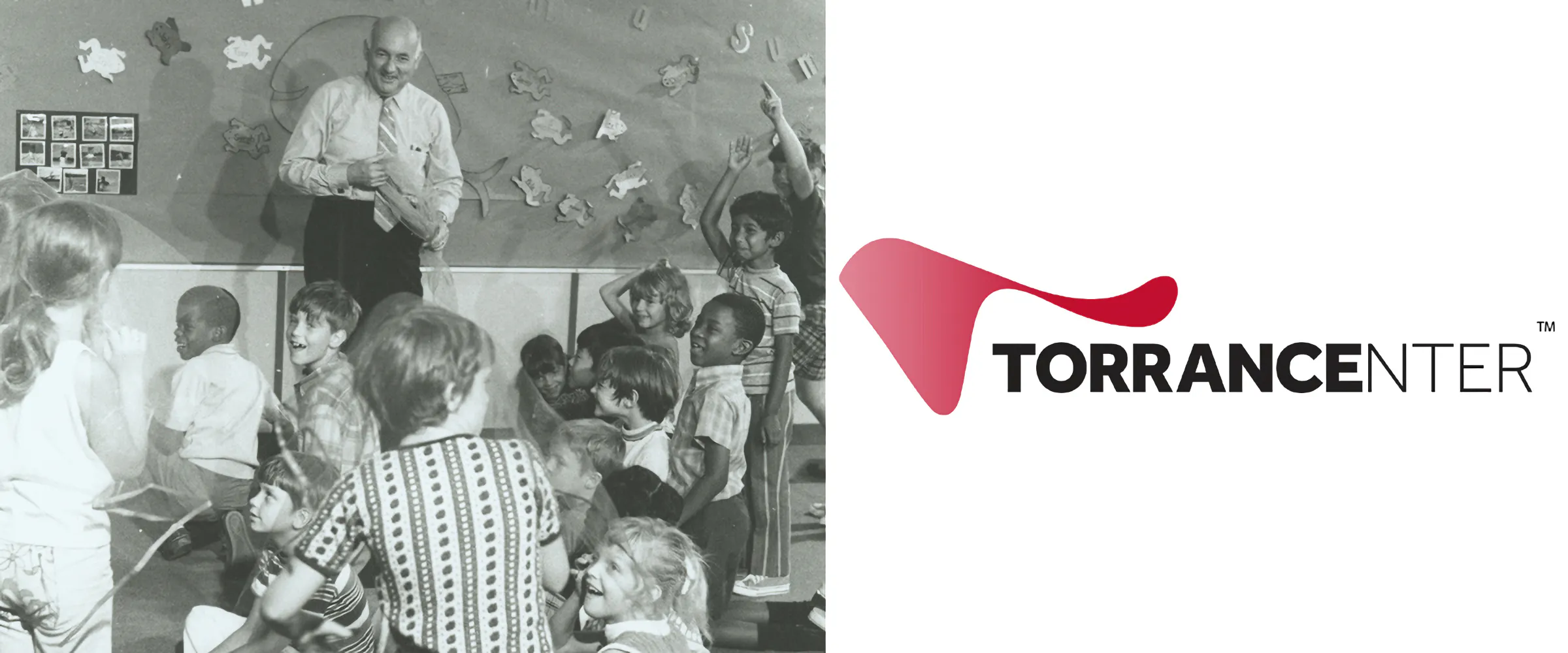Torrance Center for Creativity and Talent Development
The Torrance Center for Creativity and Talent Development is a service, instructional, and research center based in UGA’s Mary Frances Early College of Education. Our work is dedicated to the nurturing and development of creative potential, which is present in all individuals, across the lifespan. The Torrance Center is renowned for its creative skill and talent development training programs for educators and other professionals, its innovative and discovery-oriented Summer programs for children, and its public engagement events in the form of festivals and conferences that are open to the global community. The overarching goals of the Torrance Center are to investigate, evaluate, and implement techniques for enhancing creativity across domains of human enterprise and to increase creative literacy in the local, state, national, and international communities.
Upcoming Dates
Torrance Center Events
The Torrance Center hosts a variety of public events throughout the year, including lectures, workshops, conferences, and the annual Torrance Festival of Ideas.
Torrance Festival of Ideas
 This cultural festival is a platform where creative and innovative professionals across fields of human enterprise present their new exciting projects and innovative ideas to the general public. The creative spirit of Athens will be showcased in this open public engagement event.
This cultural festival is a platform where creative and innovative professionals across fields of human enterprise present their new exciting projects and innovative ideas to the general public. The creative spirit of Athens will be showcased in this open public engagement event.
Learn more about the Torrance Festival of Ideas
Torrance Lecture
 The E. Paul Torrance Lecture, sponsored by the College of Education’s Torrance Center for Creativity and Talent Development, annually brings scholars and creative artists to UGA to discuss issues related to creativity. It was established in 1985 to honor Torrance, a native Georgian and pioneer in research on the identification and development of creative potential.
The E. Paul Torrance Lecture, sponsored by the College of Education’s Torrance Center for Creativity and Talent Development, annually brings scholars and creative artists to UGA to discuss issues related to creativity. It was established in 1985 to honor Torrance, a native Georgian and pioneer in research on the identification and development of creative potential.
Learn more about the Torrance Lecture
Torrance Conferences
 The Torrance Center runs special conference events that focus on topics and themes of relevance to creativity. These events are open to the community at large and feature expert perspectives from scholars, educators, artists, and entrepreneurs.
The Torrance Center runs special conference events that focus on topics and themes of relevance to creativity. These events are open to the community at large and feature expert perspectives from scholars, educators, artists, and entrepreneurs.
Professional Learning
The Torrance Center offers training on a variety of topics centered around teaching for creativity.

TTCT Training
The Torrance Center offers expert-level training on scoring the Torrance Tests of Creative Thinking (TTCT) Figural and Verbal forms. Upon successful completion of the training program, learners will receive an official certificate of scoring reliability. The Torrance Center is the only officially recognized site for certification of TTCT scoring mastery.
While the majority of TTCT training participants are teachers, we welcome trainees from any field or industry who are interested in using the TTCT to assess creative potential. We have trained people from a variety of backgrounds, including administrators, researchers, university faculty, graduate and undergraduate students, business managers, psychologists, and counselors. Our certified trainee population represents over 30 states and 25 countries.
Counties Served
- Barrow
- Bartow
- Bibb
- Brooks
- Bryan
- Bulloch
- Burke
- Carroll
- Catoosa
- Chattahoochee
- Cherokee
- Clarke
- Cobb
- Coffee
- Colquitt
- Cook
- Coosa
- Coweta
- Crawford
- Dade
- Dodge
- Early
- Effingham
- Emanuel
- Floyd
- Fulton
- Gilmer
- Gordon
- Gwinnett
- Hall
- Harris
- Henry
- Houston
- Jackson
- Jasper
- Jenkins
- Jones
- Lanier
- Lee
- Liberty
- Lincoln
- Lowndes
- McIntosh
- Miller
- Monroe
- Murray
- Muscogee
- Oconee
- Oldham
- Paulding
- Peach
- Polk
- Randolph
- Richmond
- Rockdale
- Savannah-Chatham
- Schley
- Screven
- Sumter
- Treutlen
- Troup
- Valdosta
- Walton
- Washington
- Wayne
- Whitfied
Learn more about TTCT training
Professional Development Sessions
The Torrance Center offers training and expertise on a variety of topics on teaching for creativity and creativity in education using our multidisciplinary network of scholars. We offer flexible professional training tailored to fit the needs of your district, company, or organization.
Learn More about Professional Development Sessions
Torrance Center Summer Institute (TCSI)
In previous years, the TCSI offered courses on the principles of creative thinking as a framework for curriculum development, classroom teaching, and assessment. From 2022 on, we aim to diversify the course offerings at the TCSI to reflect the unique academic and pedagogical expertise for which the MFECOE is renowned. Educators will learn practical strategies for enhancing their overall classroom instruction. This is a great opportunity for teaching practitioners, administrators, and researchers to receive state-of-the-art instruction and guidance for optimal pedagogical practice.
For more information on Professional Training programs, contact Desiree Sharpe .
Education Programs
Creative Explorers Camp

In 2020, the Torrance Center began a new Summer program that builds on the legacy and research of E. Paul Torrance. Dr. Torrance stated in 1965 that one of the precepts of progressive education is that “education is a continuous reconstruction of living experience that goes beyond the four walls of the classroom.” The Torrance Center Creative Explorers Camp is designed to reflect this spirit and to inspire and enhance creative, imaginative, and problem-solving skills across the lifespan.
Learn more about the Creative Explorers Camp
Legacy/Former Programs
Duke TIP at UGA
Prior to Duke University’s Talent Identification Program (TIP) closure announcement in October of 2020, the Torrance Center offered TIP Academic Year Programs and supported TIP Summer Studies Programs throughout the calendar year. The Torrance Center shared more than a decade-long relationship with Duke TIP, a natural partnership that reflected both organizations’ dedication to providing exciting educational opportunities for gifted middle and high school students.
Beyonders Challenge
The Beyonders Challenge program was an online, academic year program for students showing high levels of motivation to learn topics like microbiology, epidemiology, and podcasting. The program was created in response to the COVID-19 pandemic and is currently unavailable for the indefinite future.
Discovery/Challenge Programs
These popular public outreach programs were designed by E. Paul Torrance in the 1980s (and further developed after his retirement) for P-12 students held on Saturdays, onsite at a school or other location in Athens. These programs are currently inactive.
For more information on Education Programs, email creative@uga.edu .
Research
Topics of Focus
Theme 1: Development and Training of Creativity across the Lifespan
- Predictors of creativity in adolescence
- Longitudinal investigations of creativity
- Aging and creativity
- Training creativity
- Creative thinking strategies
Theme 2: Types of Creativity
- Artistic creativity (visual, musical, kinesthetic, literary)
- Scientific creativity
- Social creativity
Theme 3: Psychology of Creativity
- Personality and intelligence
- Creative problem solving and reasoning
- Creative Cognition
- Motivation and Emotion
- Perception and Action
Theme 4: Creativity and the Brain
- Neuroimaging studies of creativity
- EEG studies of creativity
- Neuropsychological studies of creativity
- Mental illness and creativity
- Psychophysiology of creativity
Theme 5: Interdisciplinary Approaches
The Torrance Legacy
Known to many as the “Father of Creativity,” E. Paul Torrance, a native Georgian and UGA Alumni Foundation Distinguished Professor Emeritus, was a pioneer in creativity research and education for more than 50 years.
He was a monumental figure who dedicated his lifelong research and teaching to the development of the creative potential of individuals of all abilities and ages. Across his career, his major accomplishments included 1,871 publications: 88 books; 256 parts of books or cooperative volumes; 408 journal articles; 538 reports, manuals, tests, etc.; 162 articles in popular journals or magazines; 355 conference papers; and 64 forewords or prefaces.
His legacy is highlighted by the creation of the Future Problem Solving Program International, the Incubation Model of Teaching, and the Torrance Tests of Creative Thinking. All programs, research, and teaching activities sponsored by the Torrance Center are built upon his legacy.
The Center was originally founded by Mary M. Frasier in the Spring of 1984 as the Torrance Studies for Gifted, Creative, and Future Behaviors. At that time, the stated goals were:
- Research concerned with (1) developing giftedness, (2) identifying and nurturing creativity, and (3) educating for the future
- Professional training for leadership in gifted, creative, and future education
- Dissemination and retrieval of information about gifted, creative, and future studies
Many of these objectives are overseen at present through the Gifted and Creative Education Unit at UGA’s Department of Educational Psychology, which is affiliated with the Torrance Center.
Pictured above with E. Paul Torrance (from left to right) are Kay Bruch, Kathy Goff, and Mary Frasier.
Torrance Center directors:
- Mary M. Frasier (1984-1997)
- Vicki Connell (1997-1999)
- Nita Matthews-Morgan (1999-2001)
- Mark Runco (2008-2010)
- Bonnie Cramond (2005-2008; 2010-2014)
- Sarah Sumners (interim) (2014-2020)
- Anna Abraham (2020-present)
The Torrance Tests of Creative Thinking
 E. Paul Torrance began creating the Torrance Tests of Creative Thinking (TTCT) in the 1950s, and it was first published in 1966. The tests are intended for a variety of uses, including:
E. Paul Torrance began creating the Torrance Tests of Creative Thinking (TTCT) in the 1950s, and it was first published in 1966. The tests are intended for a variety of uses, including:
- to better understand the human mind, how it functions and develops
- to help develop more individualized instruction for learners
- to provide additional information for remedial and psychotherapeutic programs
- to assess the differential aspects of educational materials, programs, curricula, procedures, etc.
- to point out potentialities that might otherwise go unnoticed, especially in children from culturally diverse and lower socioeconomic backgrounds
The TTCT is comprised of the following batteries:
- Thinking Creatively with Pictures—TTCT Figural
- Thinking Creatively with Words—TTCT Verbal
- Thinking Creatively in Action and Movement (TCAM)
- Thinking Creatively in Sounds and Words
- Sounds and Images
- Onomatopoeia and Images
- Abbreviated Torrance Test for Adults (ATTA)
These assessments measure elements of creative thinking such as curiosity, imagination, boundary-breaking, and humor through a variety of well-recognized creativity components, including Fluency, Originality, Elaboration, and Flexibility. The TTCT, however, does not measure motivation, skill, or opportunity for creative achievement.
The most widely-used TTCT are the TTCT Figural and TTCT Verbal. A number of states require the TTCT as part of their gifted assessment battery, including GA, TX, AL, NC, and a number of states highly recommend its use, such as WA and CO. Due to its prominent use in gifted education, the TTCT is renormed approximately every ten years and was most recently updated in 2017.
For more information about purchasing TTCT Booklets for administration, please visit Scholastic Testing Services, Inc. .
Latest Developments
Open Positions

- Rolling call: Seeking innovative instructors for our educational programs (such as the Creative Explorers Camp). To register your interest, email creative@uga.edu .
- Potential graduate students should email Anna Abraham to register their interest.
- Internships (contact any member of the Torrance Center team)
Torrance Center in the News
- Apr 2022: Calendar Pick: Torrance Festival of Ideas
- Apr 2022: The Science Behind Creativity
- Dec 2021: Mold your mind to be happier and healthier
- May 2021: Creative Scholars Program fuels imagination, knowledge
- March 2021: UGA Torrance Center to host Festival of Ideas
- December 2020: Interview with the Torrance Center Director in Psychologie Heute (PDF)
- October 2020: Interview in the UGA Mary Frances Early College of Education 2020 Annual Report - Thought Leaders
- October 2020: Torrance Center Director Interview in SEISMA Magazine 01 EDITION - Waves of Creativity
- July 2020: Torrance Center director edits handbook that explores human imagination
Selected Presentations
- Abraham, A. (Mar 2022). The Case for Cultivating Creative Health. Creative Brain Week - a Global Brain Health Institute initiative at Trinity College Dublin, Ireland [Speaker]
- Abraham, A. (Nov 2021). What’s Your Curiosity? – Exploring the psychological ideas of ‘Looking-Glass’, from perception and identity to the science of creativity. The Victoria & Albert Museum Friday Forum Symposium [Speaker and Discussant]
- Abraham, A. (Aug 2021). Creativity: The Case for Disease-Resistant Capacities of the Human Brain. Annual Convention of the American Psychological Association (APA 2021) for the Division 40 (Society for Clinical Neuropsychology) [Symposium Speaker]
- Abraham, A. (May 2021). Creativity and the Imagination in Learning. CREATE Centre, Sydney School of Education and Social Work, University of Sydney, Australia (May 13, 2021) [Q & A Webinar]
- Abraham, A. (May 2021). Adopting a neuroscientific perspective in the study of creativity. Department of Psychology, University of Edinburgh, Scotland, UK [Keynote Talk]
- Abraham, A. (Mar 2021). The Neurocognitive Mechanisms Underlying Creative Conceptual Expansion. The Shepherd School of Music, Rice University, TX [Guest Lecture]
- Abraham, A. (Jan 2021). The Creative Brain. First Cognition Academy 2021 of the Max Planck School of Cognition, Germany, [Guest Lecture]
Selected Publications
- Abraham A (2022). Creativity or creativities? Why context matters. Design Studies, 78: 101060.
- Asquith, S. L., Wang, X., Quintana, D. S., & Abraham, A. (in press). Predictors of creativity in young people: Using frequentist and Bayesian approaches in estimating the importance of individual and contextual factors. Psychology of Aesthetics, Creativity, and the Arts.
- Abraham, A. (2021). The Ingredients of the Creative Mind. The American Journal of Psychology, 134(1), 107–110.
- Abraham, A. (Ed.). (2020). The Cambridge Handbook of the Imagination. Cambridge, M.A.: Cambridge University Press.
- Abraham A (2019). The neuropsychology of creativity. Current Opinion in Behavioral Sciences, 27, 71-76.
- Abraham A, Asquith S, Ahmed H & Bourisly AK (2019). Comparing the efficacy of four brief inductions in boosting short-term creativity. Journal of Cognitive Enhancement, 3 (1), 85-93.
Outreach, Service, and Consultancy
- Creativity in Education Roundtable – Georgia Education community, statewide; August 2022, November 2023
- Teaching for Creativity – Clarke County School District, January 2023
- A select overview of Torrance Center services – Clarke County School District, September 2021
- Creative Problem Solving & Future Problem Solving - Habersham County Schools, January 2019
- Using Creative Strategies in the Workplace - Athens-Clarke County Library, November 2018
- American Psychological Association
- Georgia Professional Standards Commission: Task Force on Gifted Education
- Georgia Department of Education: Gifted Education Committee
- Georgia Association for Gifted Children Annual Conference
- Innovation in Teaching Conference Steering Committee
- Leverhulme Trust, UK
- National Association for Gifted Children Annual Conference
- National Science Foundation
- Southern Oregon University Creativity Conference
- Fulton County Professional Development sessions – Fulton County Schools, March 2024
- Classroom Strategies for Teaching for Creativity – City Schools of Decatur, April 2023
- Extending Project-Based Learning to Teach for Creativity – Social Circle City Schools, March 2023
- The Torrance Toolbox: Best Practices for Designing a Creative Learning Environment – Western Central Ohio Association for Gifted Children (WCOAGC), January & February 2022
- TTCT-Figural Technical Assistance and Scoring for Maternal Outcomes and Neurodevelopmental Effects of Antiepileptic Drugs (MONEAD) - Emory University
- Creative Strategies, Creative Potential, Visiting Scholars Workshop: Creativity and the Future of the Workforce - University of Montana, August 2019
Visiting Scholar Program
 Initiated in 1984 as part of the founding of the Torrance Center, the Visiting Scholar Program was developed to encourage research by national and international scholars in creativity. Individuals come to the Torrance Center to study or conduct creativity research and then return to their home institutions, forming a network of worldwide scholars.
Initiated in 1984 as part of the founding of the Torrance Center, the Visiting Scholar Program was developed to encourage research by national and international scholars in creativity. Individuals come to the Torrance Center to study or conduct creativity research and then return to their home institutions, forming a network of worldwide scholars.
The Torrance Center continues this legacy by hosting visiting scholars and teachers nationally and internationally with a variety of research interests. This international visiting scholar program provides research networking opportunities for participants to help them connect with faculty members and graduate students, expand their knowledge in creativity theories, and practice creativity in addition to general educational psychology. The visiting scholars can sit in on the courses offered in the gifted and creative education program at UGA during their visiting period.
For more information on the program and the application procedure, contact Tabatha Minish .
Affiliates and Collaborators
- ** Bailey Arnold**
Undergraduate Program Assistant - Alisa Castilla
Graduate Program Assistant - Harrison Chapman
Graduate Research Assistant - Hailey Covarrubias
Undergraduate Program Assistant - ** Sophia Schier**
Undergraduate Communications Assistant
